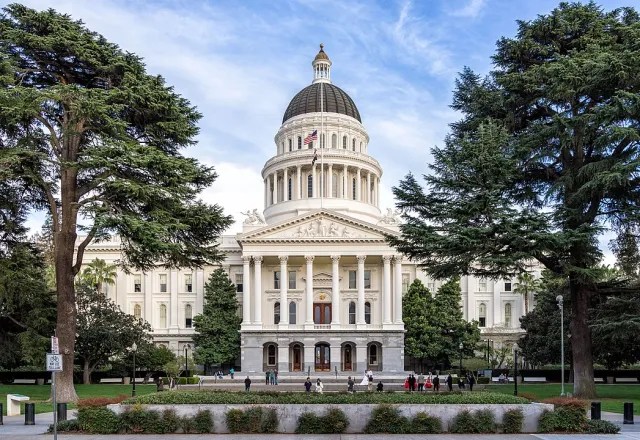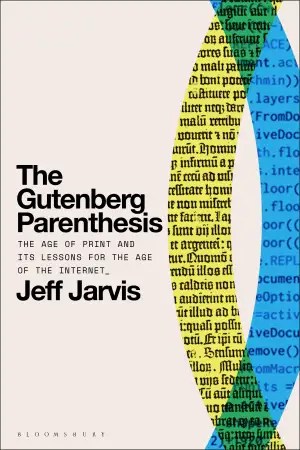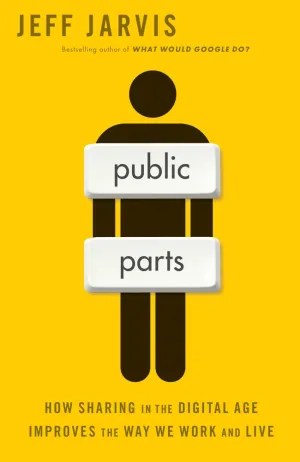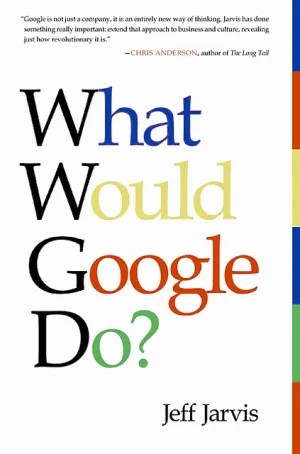
A deal has just been struck in California by Assembly member Buffy Wicks that averts what could have been, in my opinion, disastrous legislation written by lobbyists to benefit primarily incumbent, investor- and hedge-fund-controlled news media in and out of the state.
I am gratified that the outline of the announcement approaches what I had proposed in my research on the legislation, commissioned by the California Chamber of Commerce, and in testimony I gave to a California Senate committee.
The structure of the deal: a private/public fund to support news, overseen by an independent board and administered by a university. I’ve gotten a few more details of the plan and this could well change, but as I understand it, it provides for:
- A matching fund for news with $15 million from Google and $15 million in public money in the first year. Years two to five are to be determined but I understand there are floors and ceilings set.
- The fund is likely to be based on employment (full-time and freelance) in news organizations, which would disappoint me insofar as some money would end up with investor- and hedge-fund-owned newspapers that are cutting more than investing in news. Money being fungible, that money will likely go to their P&Ls rather than supporting more reporting.
- The fund is to be administered at UC-Berkeley’s journalism school under a board that includes representatives from independent, Black, Latino, and ethnic media and labor. That board will decide such matters as eligibility.
- Google will have no say in how these funds are distributed.
- Google will contribute $5 million to seed a separate AI innovation fund, which will benefit news and other sectors. In my testimony, I said it critical for the news and tech industries to work together on this front, now more than ever.
- Other tech companies will be approached to contribute to one of the funds. OpenAI is quoted in Wicks’ press release. I wish that Meta, Amazon, Apple, Microsoft, and other companies will step up.
- In the press release, Governor Gavin Newsom also expressed support for legislation that would devote a substantial portion of “official marketing, advertising and/or outreach advertising with local and underrepresented media outlets.” Good.
- And importantly, Google will continue its support for its News Showcase and Google News Initiative (GNI), with a commitment increasing to $10 million a year. I had feared this support would go away if one of the bills passed. Especially Google has driven much innovation in news and the continuance of the fund in California (unlike Canada) will enable worthy projects (like the WGBH quality news network) to get ongoing support.
I would have preferred a fund like the NJ Civic Info Consortium, an independent, nonprofit organization established by legislation to provide grants and support to local news organizations meeting goals for equity and innovation in news, with accountability for outcomes. New Jersey’s fund, supported by public and foundation dollars, is administered by an independent board appointed by universities, the governor, the legislature, and the board itself, working closely with Montclair State University’s Center for Coooperative Media and New Jersey News Commons. (Disclosure: I serve on the Center’s board of advisors.)
The California deal averts many perilous outcomes from the legislation. The two bills that came from California’s Assembly and Senate raised, in my view, constitutional issues — which I discussed in my paper and then here and here — and likely would have been tied up in courts with challenges for years, delaying payment to news organizations.
Worse, Meta vowed that if the legislation passed, it would do what it did in Canada pulling news off Facebook and Instagram rather than being forced to pay for linking to it. As I also outline in my paper, that move has proved inconsequential to the platforms but disastrous to news sites — especially community news sites — that have lost most of their social traffic. Given that there will be no new law in California, Meta will not have an excuse to drop news there. I hope it will not only continue to link to news but will support these efforts. Meta says that because there is no legislation, it will not limit news on the platforms.
There are many questions that can be answered only through experience: who exactly will join the board; how the board will determine eligibility for the funds; and how — if at all — it will monitor accountability.
I give much credit and respect to Wicks. I was quite critical of the first draft of her California Journalism Preservation Act (CJPA) and testified against it. In that hearing, she made clear that she was open to discussion and meant it. She has proved an adept negotiator in bringing many interests — old news and new news in many definitions and technology — together for a rational, logical framework. Not everyone will be pleased. That’s negotiation.
I am especially glad to see that Wicks’ efforts broke a pattern that started in Germany and ran through Spain, the EU, Australia, and Canada, in which legislators under the influence of old-media lobbyists passed bills making demands on tech companies, rather than attempting to find mutual benefit. California shows a new path toward discussion instead. In California, Wicks and her Senate colleague Steve Glazer used their bills as a forcing mechanism to bring Google (and, I hope, other technology companies next) to the table.
Incumbent newspapers and their lobbyists have behaved badly in California as they have elsewhere. The original version of CJPA was written by newspaper lobbyists. It was an adaptation of Sen. Amy Klobuchar’s equally awful federal Journalism Competition and Preservation Act, which was created by the News/Media Alliance (new name for two very old newspaper and magazine trade associations). That bill is thankfully so far stalled in Congress (what isn’t?). I testified against a carbon copy of CJPA that has so far not passed in Illinois.
Newspaper lobbyists always and not surprisingly attempt to benefit their legacy funders to the exclusion of other independent, not-for-profit, Black, Latino, and digital — that is to say, competitive — news media. In New York, unbelievably, a new law creating a tax credit for journalism jobs benefits print — let me repeat that, print — newspapers to the explicit exclusion of not-for-profit and digital local media. How damned 1973 of the Empire State and its governor. There’s a similar effort in Washington State. In California, as I understand it, the local newspaper lobbyist association has held out to get compensated on the basis of jobs (rather than goals and outcomes); increase its representation on the board; and drastically cut a percentage of the fund that was supposed to be earmarked for underrepresented and small, hyperlocal news media. I am glad that Google now still has funds in its GNI, which it can flexibly direct to those needs.
My glass-half-empty view is that the old, incumbent, hedge-fund- and investor-controlled newspapers — which are primarily responsible for the consolidation and ruin of news in the state — still have too much influence. My glass-half-full view is that the lobbyists did not fully get their way — we know because a few are stomping their feet. That fills me with Schadenfreude.
It should be noted that the newspaper lobbyists had insisted that Canada’s legislation has been a success for journalism. That could not be more wrong (and I write about that in my paper). They also tried to argue that California should get the same dollar amount Canada did ($73m US), but on a proportional, per-journalist basis, the state of California ends up at lest as well off as the entire nation of Canada.
What matters most to me now is that independent, not-for-profit, Black, Latino, underrepresented, community, and digital startup news — that is to say, the future, not the past of journalism across America — must gather together to be heard as a force to counter the malign influence of the hedge funds and investors who are dismantling journalism in every state. There are great groups serving these news organizations, new and old — Local Independent Online News (LION), the Institute for Nonprofit News (INN), Montclair State’s Center for Cooperative Media (CCM), and the Newmark J-school’s Center for Community Media (the other CCM). They need to exert themselves as a force to be heard by legislators whenever the health of local news is discussed.
It is also important for legislators and governors to realize that they need no longer bow down before the proprietors of old, dying newspapers. The L.A. Times — which has been laying off journalists right and left at the same time as its investor owner was arguing that he alone was somehow due more than $100 million in this legislation — now has market penetration in L.A. County under five percent. It does not set the agenda. Publishers no longer buy ink by the barrel; they buy it by the thimble and thus politicians need not fear them anymore. Legislators would do better paying attention to emergent, diverse, community, and digital media in their towns, helping to support that.
I am a Kamala Harris Democrat, but for one paragraph I’m going to sound like a libertarian: I get hives at the idea of government involvement in speech and especially jouranalism. I dislike news organizations of any age or size cashing in political capital and seeking favors from and depending on government — or technology companies — when they are supposed to cover those powerful institutions independently. But given that the discussion about support for local news has already jumped over that hurdle, my interest has been in seeing that the support is done in the best way possible. California’s deal is a step in the right direction. The NJ Civic Info Consortium is another.
The money these funds provide can help but it is far from enough to support the news we need. The same must be said for philanthropy and patronage: never enough. News has to find greater efficiencies and independent economic sustainability, a quest I’ve devoted the last fifteen years of my career to working on. There will be no messiahs — all are false — or easy solutions. Old journalism — our broken national media and our denuded local news media — are likely beyond repair. This is why I came to teach: to help the next generation build a new journalism to serve communities rather than their own interests, to concentrate on value provided to communities, not proprietors’ pocketbooks. If policymakers really want to support news, then support that future.
































